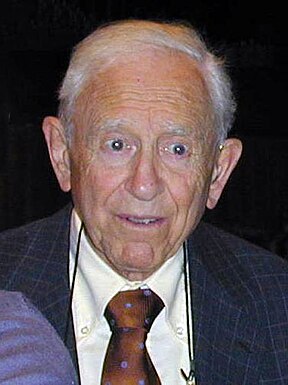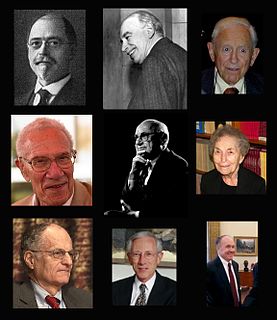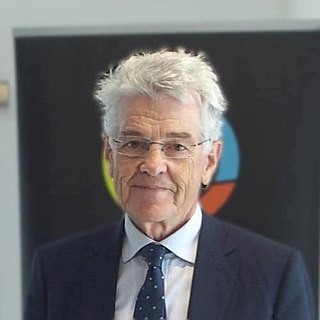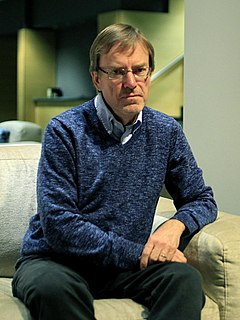Reception
Reviews were generally positive. Economist and fund manager Warren Mosler, reviewing Full Employment Abandoned on the Amazon.com website, wrote that "those...not all that interested in the details of unemployment per se" should turn to Part III, "which outlines the imperatives of non convertible currency." [1]
Philip Arestis, professor of economics at Cambridge University, UK, wrote that the book "argues persuasively that macroeconomic policy has been restrictive over the recent, and not so recent past, and has produced substantial open and disguised unemployment." [2]
L. Randall Wray, professor of economics at the University of Missouri–Kansas City, USA, also a post-Keynesian economist, like Mosler, Arestis and the two authors, notes that while "orthodoxy only calls for greater market flexibility, less government intrusion, more individual responsibility, and —perhaps— a small role for positive action to promote education, training, and innovation," this book demonstrates "it wasn't always so." Wray writes that "Milton Friedman’s insertion of expectations overturned the textbook variety of Keynesianism, returning macroeconomics to its neoclassical, pre-Depression roots. What could be added is that Friedman cleverly reversed causality, from the Keynesian view that excess demand causes inflation to the now dominant claim that inflation reduces aggregate activity below equilibrium." He claims that Full Employment Abandoned "demonstrates that neither empirical evidence nor rigorous theory supports the theologically-infused consensus about benefits of low inflation and of the possibility of using monetary policy to get there." [3]
Professor Philip Lawn, of Flinders University, Adelaide, Australia reviewed the book for the International Journal of Environment, Workplace and Employment and wrote that it "convincingly demonstrates that unemployment is both morally indefensible and unnecessary." [4]
Other reviewers and academics have argued against the notion of Job Guarantee advanced by the book. Malcolm Sawyer, Professor Emeritus of Economics, Leeds University, pointed out that "should unemployment fall below some ‘natural’ level, inflation [would] accelerate," and disputes the JG costs estimates as "too modest." [5]

Keynesian economics are the various macroeconomic theories and models of how aggregate demand strongly influences economic output and inflation. In the Keynesian view, aggregate demand does not necessarily equal the productive capacity of the economy. Instead, it is influenced by a host of factors – sometimes behaving erratically – affecting production, employment, and inflation.

Macroeconomics is a branch of economics dealing with performance, structure, behavior, and decision-making of an economy as a whole. For example, using interest rates, taxes, and government spending to regulate an economy’s growth and stability. This includes regional, national, and global economies. According to a 2018 assessment by economists Emi Nakamura and Jón Steinsson, economic "evidence regarding the consequences of different macroeconomic policies is still highly imperfect and open to serious criticism."

Post-Keynesian economics is a school of economic thought with its origins in The General Theory of John Maynard Keynes, with subsequent development influenced to a large degree by Michał Kalecki, Joan Robinson, Nicholas Kaldor, Sidney Weintraub, Paul Davidson, Piero Sraffa and Jan Kregel. Historian Robert Skidelsky argues that the post-Keynesian school has remained closest to the spirit of Keynes' original work. It is a heterodox approach to economics.
Full employment is a situation in which there is no cyclical or deficient-demand unemployment. Full employment does not entail the disappearance of all unemployment, as other kinds of unemployment, namely structural and frictional, may remain. For instance, workers who are "between jobs" for short periods of time as they search for better employment are not counted against full employment, as such unemployment is frictional rather than cyclical. An economy with full employment might also have unemployment or underemployment where part-time workers cannot find jobs appropriate to their skill level, as such unemployment is considered structural rather than cyclical. Full employment marks the point past which expansionary fiscal and/or monetary policy cannot reduce unemployment any further without causing inflation.

Franco Modigliani was an Italian-American economist and the recipient of the 1985 Nobel Memorial Prize in Economics. He was a professor at University of Illinois at Urbana–Champaign, Carnegie Mellon University, and MIT Sloan School of Management.

The Phillips curve is an economic model, named after William Phillips hypothesizing a correlation between reduction in unemployment and increased rates of wage rises within an economy. While Phillips himself did not state a linked relationship between employment and inflation, this was a trivial deduction from his statistical findings. Paul Samuelson and Robert Solow made the connection explicit and subsequently Milton Friedman and Edmund Phelps put the theoretical structure in place. In so doing, Friedman successfully predicted the imminent collapse of Phillips' a-theoretical correlation.

Modern Monetary Theory or Modern Money Theory (MMT) is a heterodox macroeconomic theory that describes currency as a public monopoly and unemployment as evidence that a currency monopolist is overly restricting the supply of the financial assets needed to pay taxes and satisfy savings desires. MMT is opposed to the mainstream understanding of macroeconomic theory, and has been criticized by many mainstream economists.

Paul Davidson is an American macroeconomist who has been one of the leading spokesmen of the American branch of the post-Keynesian school in economics. He is a prolific writer and has actively intervened in important debates on economic policy from a position critical of mainstream economics.
A job guarantee (JG) is an economic policy proposal that aims to provide a sustainable solution to inflation and unemployment. Its aim is to create full employment and price stability by having the state promise to hire unemployed workers as an employer of last resort (ELR).

Non-accelerating inflation rate of unemployment (NAIRU) is a theoretical level of unemployment below which inflation would be expected to rise. It was first introduced as NIRU by Franco Modigliani and Lucas Papademos in 1975, as an improvement over the "natural rate of unemployment" concept, which was proposed earlier by Milton Friedman.

Macroeconomic theory has its origins in the study of business cycles and monetary theory. In general, early theorists believed monetary factors could not affect real factors such as real output. John Maynard Keynes attacked some of these "classical" theories and produced a general theory that described the whole economy in terms of aggregates rather than individual, microeconomic parts. Attempting to explain unemployment and recessions, he noticed the tendency for people and businesses to hoard cash and avoid investment during a recession. He argued that this invalidated the assumptions of classical economists who thought that markets always clear, leaving no surplus of goods and no willing labor left idle.
Athanasios "Tom" Asimakopulos was a Canadian economist, who was the "William Dow Professor of Political Economy" in the Department of Economics, McGill University, Montreal, Quebec, Canada. His monograph, Keynes's General Theory and Accumulation, reviews important areas of Keynes's General Theory and the theories of accumulation of two of his most distinguished followers, Roy Harrod and Joan Robinson.

Warren Mosler is an American economist, hedge fund manager, politician, and entrepreneur. He is a co-founder of the Center for Full Employment And Price Stability at University of Missouri-Kansas City. and the founder of Mosler Automotive.
Victoria Chick is a Post Keynesian economist. She has made contributions to the understanding of Keynes's General Theory.

William Francis Mitchell is a professor of economics at the University of Newcastle, New South Wales, Australia and Docent Professor of Global Political Economy at the University of Helsinki, Finland. He is one of the founding developers of Modern Monetary Theory.

Joan Muysken is a Dutch professor emeritus of Economics at the Maastricht University.

Larry Randall Wray is a professor of Economics at Bard College and Senior Scholar at the Levy Economics Institute. Previously, he was a professor at the University of Missouri–Kansas City in Kansas City, Missouri, USA, whose faculty he joined in August 1999, and a professor at the University of Denver, where he served from 1987 to 1999. He has served as a visiting professor at the University of Rome, Italy, the University of Paris, France, and the UNAM, in Mexico City. From 1994 to 1995 he was a Fulbright Scholar at the University of Bologna. From 2015 he is a Visiting professor at the University of Bergamo.

In macroeconomics, chartalism is a is a heterodox theory of money that argues that money originated historically with states' attempts to direct economic activity rather than as a spontaneous solution to the problems with barter or as a means with which to tokenize debt, and that fiat currency has value in exchange because of sovereign power to levy taxes on economic activity payable in the currency they issue.

Pavlina R. Tcherneva is an American economist, of Bulgarian descent, working as associate professor and director of the economics program at Bard College. She is also a research associate at the Levy Economics Institute and expert at the Institute for New Economic Thinking.
In economics, non-accelerating inflation buffer employment ratio (NAIBER) refers to a systemic proposal for an in-built inflation control mechanism devised by economists Bill Mitchell and Warren Mosler, and advocated by Modern Money Theory as replacement for NAIRU. The concept of NAIBER is related to the idea of a job guarantee aimed to create full employment and price stability, by having the state promise to hire unemployed workers as an employer of last resort (ELR).









